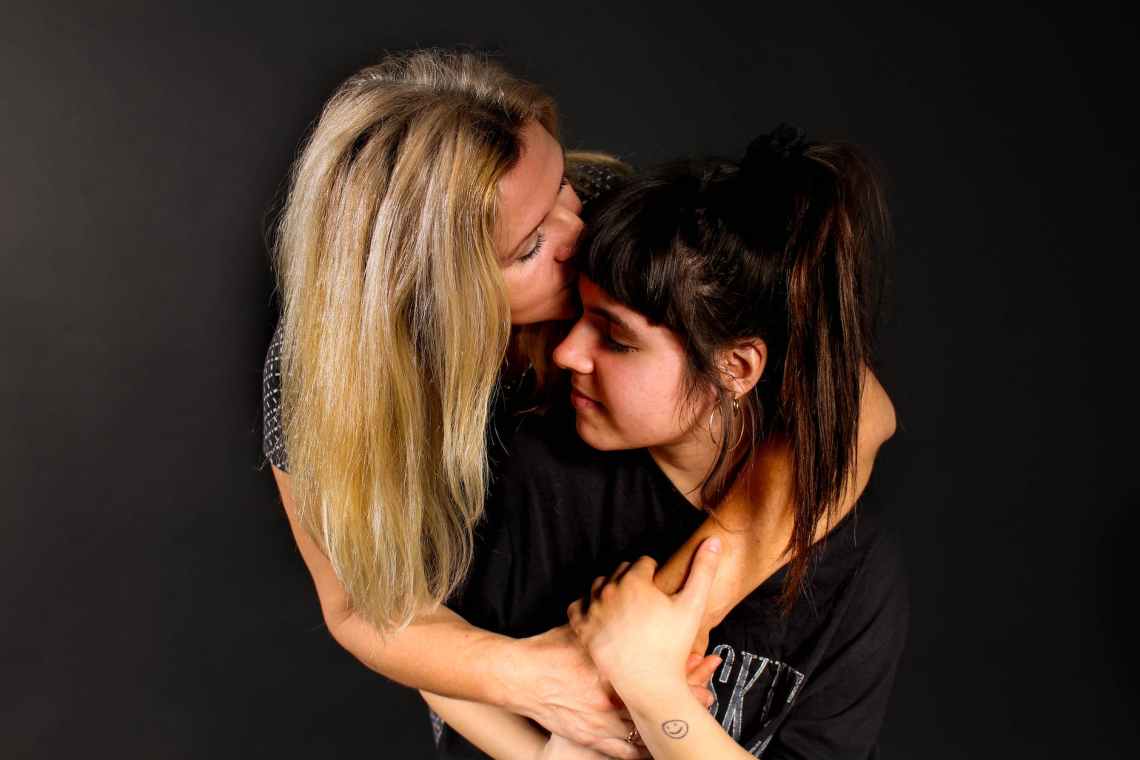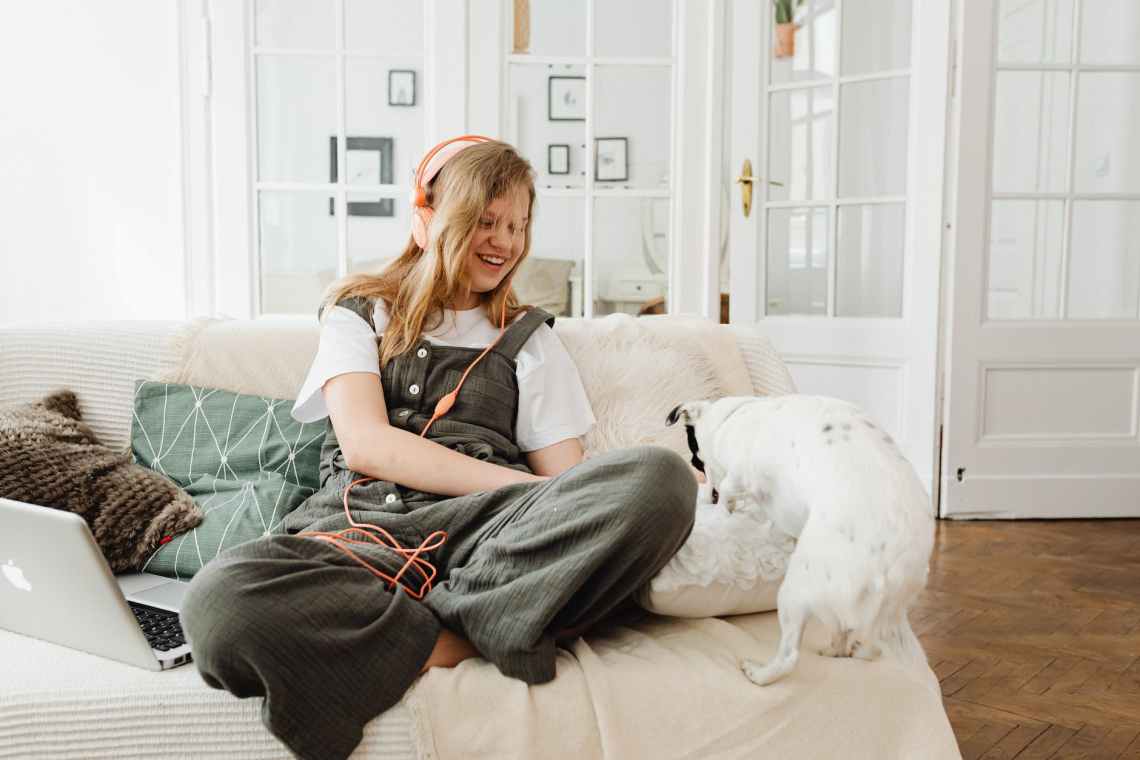My Honest Account Of Supporting My Autistic Teen Into Young Adulthood
A mum in my newsletter community recently reached out to me for advice with parenting her neurodivergent teen soon-to-be young adult. She shared that her autistic daughter was in her last year of high school and was contemplating going to university next year (college for those of you in the USA).
The mother asked me if our family could record an episode of our family podcast sharing the things, we did to prepare our eldest child and ourselves in the year leading up to them leaving home and moving away for university.

I read the email four times.
I reflected on her words and contemplated what the episode would look like. I thought about all its benefits… And then I remembered what actually happened in the year leading up to them leaving home.
I arrived at the conclusion, that in all honesty, this was something I unfortunately could not do.
Our Autistic Teen’s Last Year Of High School
If I am being brutally honest the particular year in question was sh#t!
I would like to tell you about all the neatly laid out plans, wisdom and life skills I imparted to my daughter. However, quite frankly on the parenting front, I was drowning.
The theme of 2020 was survival.
When I think back to this time, all I can see are layers upon layers of heartache, trauma and grief…
As one of my favourite lines from the Panic! At The Disco song, Impossible Year aptly describes:
There’s no you and me this impossible year. Only heartache and heartbreak and gin made of tears.
Panic! At The Disco
The Impossible Year
2020 was the year that COVID-19 hit our shores.
Lockdowns, disappointments and global uncertainty ripping our teenagers’ already fragile mental health to shreds.
It was a year punctuated with crisis after crisis.
We navigated hospital stays, near-death experiences and family games of Uno in rundown hospital wards, as we pretended to be a ‘normal’ family.
An eventual autism diagnosis is somewhere in the mix.

As I think back to my younger self, I just want to wrap her up in a big hug and tell her that it is all going to be okay. I would like to remind her that she is strong enough to make it through.
And somehow, we did.
We made it to our eldest child’s final day of high school.
However, instead of the high school balls and graduation parties that I envisioned we would have when my children were little, we just sighed a sigh of relief!
Do you need support for your family? Check out our life-changing group parenting program.
Transitioning And Letting Go
As 2020 came to an end, I added the extra layers of grief that only a parent whose teenage child is leaving home for the first time could comprehend, to the macabre tapestry that was the year.
As I sat under the giant Totara tree and listened to the Tui trill in the camping spot that we have been bringing our children to since they were toddlers, I sobbed uncontrollably wrestling with the knowledge that our lives would never be the same again.
Before we knew it, February came around.
We packed up my Honda with my daughter’s worldly possessions and made the two-day trek across the North Island of New Zealand to settle them into their university halls of residence.

I was at a loss. I had absolutely no point of reference for this moment of parenting.
Furthermore, I did this with no idea of how their newly diagnosed autism would impact their university career. It was all so new to us.
We literally took a phone call in the car park of the supermarket (while shopping for pantry essentials for their new flat) from their psychologist. As we listened intently in the car while she talked us through her diagnostic report, I felt sheer panic course through my veins. “Had I done enough?”
Do you need support for your family? Check out our life-changing group parenting program.
Goodbyes
On 15 February 2021, I posted this on Instagram:
And with a hug and a smile they were gone.
Off on the adventure that is uni life.
There was nothing to do, nothing to say.
It just was.
The unfolding of events made me reminisce about their first day of school thirteen years ago.
The teacher is in the front of the room—the children, bright-faced and nervously excited. The mums holding back tears the dad’s trying to be strong.
The teacher smiled at the boys and girls eagerly looking up at her and then adjusted her glance to the parents at the back of the room.
“Okay, everyone” she exclaimed brightly “let’s all say goodbye to the mums and dads”.
With one sentence we became spare parts – surplus to requirement. Embarrassed we all hastily said our farewells to our precious treasures and left them to the business of being at ‘big school’ while we tearfully went about our days.
I recall keeping one eye on the telephone just in case I was needed.
“Would they make friends?”
“Would they remember to eat?”
“Would someone comfort them if they got hurt?”
“What if someone was mean to them?”
But the call never came.
Turns out that they were okay all on their own.
This feels like that day.
Except that there will be no 3 p.m. bell. No school pickup. No afternoon tea with the effervescent retelling of the day’s events.
This is where I leave them and drive home eleven and a half hours away.
This is where I learn to trust that they can take care of themself.
This is where I learn to parent from a distance.

Learning To Parent From A Distance When Parenting Neurodivergent Young Adults
Since then, I have adapted and learned to parent from a distance.
Subsequently, I supported yet another one of my children to fly from the nest.
I learned to embrace my role as the safe base on the circle of security. Allowing my hands to be open on the circle as I let them go to fly free – supporting my children’s exploration of themselves as sovereign beings and their place in the world the best I could.
Instead of directly influencing my children and their lives, I worked to weave a supportive network around my children. My ultimate goal was to foster their independence while accommodating their disabilities.
Do you need support for your family? Check out our life-changing group parenting program.
Cycles Of Parenting – Homecoming
And then unexpectedly, 2023 has turned out to be the year that everyone flies back.
First one and then the other.
For various reasons, that I won’t go into protect the privacy of my children, I have had the privilege to now take on the role of safe haven on the circle of security.

My hands now open to receive them, to protect and comfort and welcome them in.
It has been a gift as a mum to help them heal from heartache and recover from the autistic burnout that no one cautioned us to expect.
The Importance Of Radical Acceptance When Parenting Neurodivergent Young Adults
As I reflect on this experience I acknowledge the many skills I have learned along the way. Most certainly, these skills have proved essential to navigate the cycles of parenthood I have travelled through in the last few years.
However, the one skill that stands out above all and has helped me the most is learning how to nurture radical acceptance in myself.
I realised very early on in my journey that my parenting journey might differ from other parents. It dawned on me that the longer I spent butting my head against the unmovable wall of reality the less energy I would have for my supporting my family and the journey ahead.
When you argue with reality, you lose, but only 100% of the time.
Byron Katie
Do you need support for your family? Check out our life-changing group parenting program.
Challenging Social Perceptions On Parenting Neurodivergent Young Adults
I know that there are people in my life who might look at the way things are in my family and judge us by traditional, ‘normal’ standards.
Generally speaking, my children may be expected to strive for a university education and a 9-5 job. Autism is largely an invisible disability. This may cause some people to wonder why my children don’t have the social independence of other young adults their age.
Many people might shake their heads at the low-demand parenting we have embraced. They might perceive my children’s recovery from burnout as ‘laziness’.
However, I would like to challenge these social perspectives.

Do you need support for your family? Check out our life-changing group parenting program.
Important Considerations For Parenting Autistic Young Adults
Comparatively, an autistic young person who may have appeared to be a ‘tiny adult’ or ‘old soul’ when they were a child may go through a regression in adolescence. Many autistic young adults may appear to be lacking life skills or even ‘immature’ compared to their same-age peers.
Furthermore, autistic young adults are at high risk for autistic burnout as they transition from high school to college/vocational school or work and learn to live independently.
Overall, due to the dynamic nature of autism and how a person may be disabled their capacity and their support needs may vary. Many autistic adults struggle with making their own phone calls, filling out forms and buying their own food at the grocery store. Similarly, they may need help to order their own food at a restaurant. Furthermore, they may need someone to go out with them into the community.
As human beings, we are largely communal beings. Living in isolation and striving for independence as an ideal is largely a new concept for humankind. Many people need and thrive from living in family groups and supporting each other through the various cycles of life.
My experience has forced me to redefine my ideas of what ‘success’ might look like for my kids. As a result, I have been prompted to cultivate the understanding that their path in life might have a few more twists, turns, bumps and u-turns than we all expected and that is okay.
My children are on their own path, their own life purpose. It is not up to me to decide what it will be. However, I will try my best to be the steward of their dreams and support them to reach their goals and dreams.
Your children are not a masterpiece that you create.
They are their own masterpiece, creating themselves, and you have been given the privilege of watching them be the artist.
J. Warren Welch
Do You Need Support With Parenting Your Neurodivergent Child Or Teen? Contact Me About Parenting Coaching
Meet The Person Who Wrote This Blog

Tanya Valentin is a Trauma-Informed and Neuro-Affirming Family Coach, NZ Registered Teacher, Lecturer (Te Pukenga – Early Childhood Education and Care), Author and Podcaster.
Tanya is a Neurodivergent person and a proud Mama of 3 Neurodivergent humans. She works to support, educate and foster inclusion, acceptance and positive life outcomes for all neurodivergent children, teenagers and adults in all her areas of life.
Tanya lives with her family in beautiful Northland, New Zealand. She has authored several books and blogs and co-hosts the Seen Heard Accepted Podcast with her family. She is the founder of the Neurodivergent Family Toolbox and the Parenting Neurodivergent Kids Together Community and podcast.
Tanya is committed to making a difference in the world by supporting parents with practical tools and strategies to help them understand their child and their unique wiring, feel confident in their parenting and nurture strong connections between themselves and their children.
Need personalised support for yourself and your family? Book your FREE 30-minute call with Tanya
